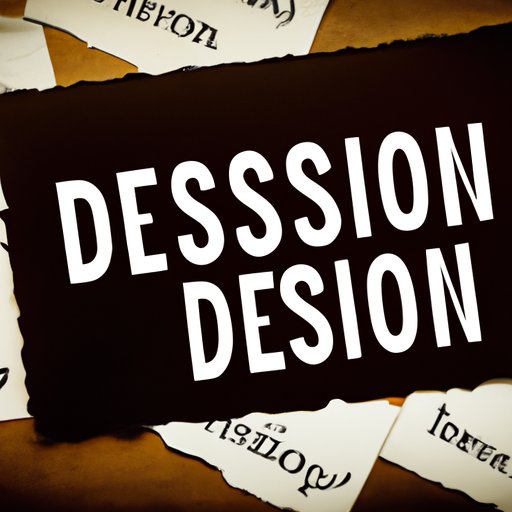
Introduction
Depression is a prevalent mental health condition that affects millions of people worldwide. In the modern era, the prevalence of depression has significantly increased. Studies suggest that approximately 300 million people are suffering from depression globally. Moreover, depression is one of the leading causes of disability across the world.
Recognizing the symptoms of depression is crucial for identifying the condition and seeking appropriate treatment. In this article, we explore the ten common symptoms of depression, the psychological experiences, how to identify if you’re depressed, and coping strategies to overcome depression.
The Ten Common Symptoms of Depression
Depression symptoms vary from individual to individual and may have different levels of severity. The ten common symptoms of depression include:
- Changes in appetite or weight
- Insomnia or hypersomnia
- Fatigue or loss of energy
- Feelings of worthlessness or guilt
- Difficulty concentrating or making decisions
- Physical symptoms (headaches, digestive issues)
- Psychomotor agitation or retardation
- Loss of interest or pleasure in activities
- Persistent sadness or feelings of emptiness
- Suicidal ideation or attempts
If you experience any of these symptoms, it is crucial to seek professional help and treatment.
The Psychological Experience of Depression
The psychological experiences of depression can be complex. Depression can cause feelings of hopelessness, sadness, and loneliness that may be challenging to overcome. The difference between regular down moods and depression symptoms is the intensity, duration, and frequency. Depression symptoms may be more intense, last longer, and occur more frequently than regular mood swings.
Seeking the right kind of professional help is essential. A licensed mental health professional can provide accurate diagnosis and treatment options for depression. They will evaluate your symptoms, the severity, and how long the symptoms have been present.
Identifying If You’re Depressed
Assessing your mental health is vital, particularly if you experience any of the depression symptoms. Here are some tips to evaluate your own mental health:
- Write down your thoughts and feelings and reflect on them
- Assess your daily routine and check for changes in sleeping or eating patterns
- Monitor your thoughts around your self-image and self-talk
- Track your mood regularly
If you are finding coping with the symptoms challenging, reach out to your family and friends for support. They can help you find resources and provide essential emotional support. Having a strong network of family and friends can be very beneficial in coping with depression.
If necessary, make an appointment with a licensed mental health professional. They can provide you with the right diagnosis and help you find the best treatment options for your condition.
Coping with Depression
There are several coping mechanisms and self-help strategies you can utilize to manage your depression symptoms. Here are some of the most common coping strategies:
- Physical exercise and healthy diet
- Meditation and yoga practices
- Journaling to vent your emotions and thoughts
- Expressing your feelings through art and creativity
- Relaxation techniques such as deep breathing and muscle relaxation
It is essential to develop your coping strategies to manage your depression symptoms. Professional therapy can also be an effective way to cope with depression, and a licensed mental health professional can provide the right treatment option.
Conclusion
Understanding the common symptoms of depression is essential. Knowing how to identify the symptoms and seek appropriate treatment is paramount for living a healthy and happy life. It’s vital to remember that depression is a treatable condition with the right help and support. If you experience depression symptoms, seek professional help and connect with a support network to help you through the challenging times.




